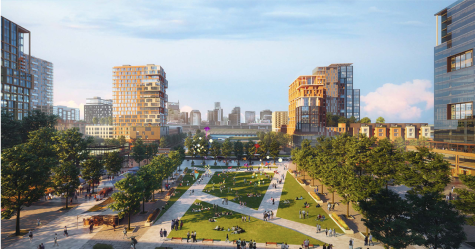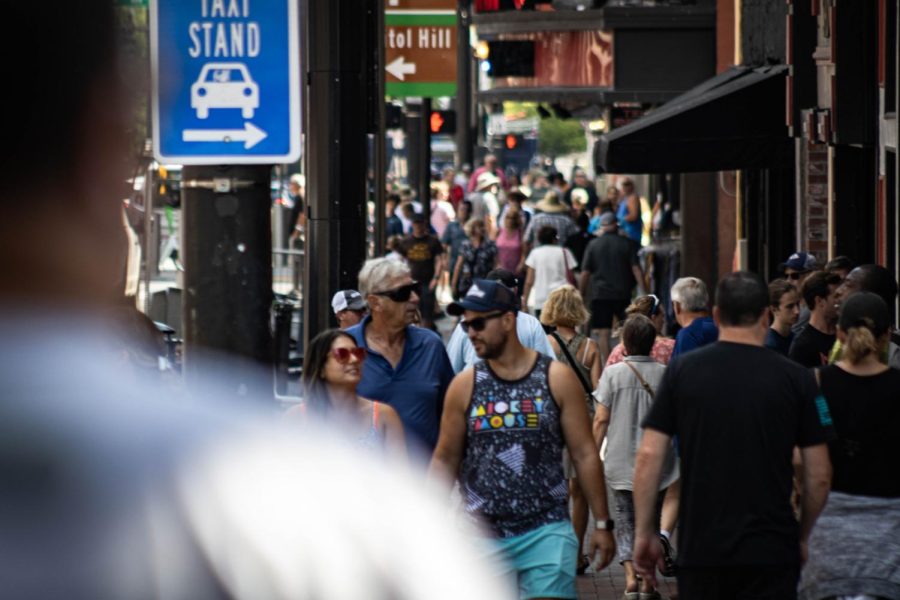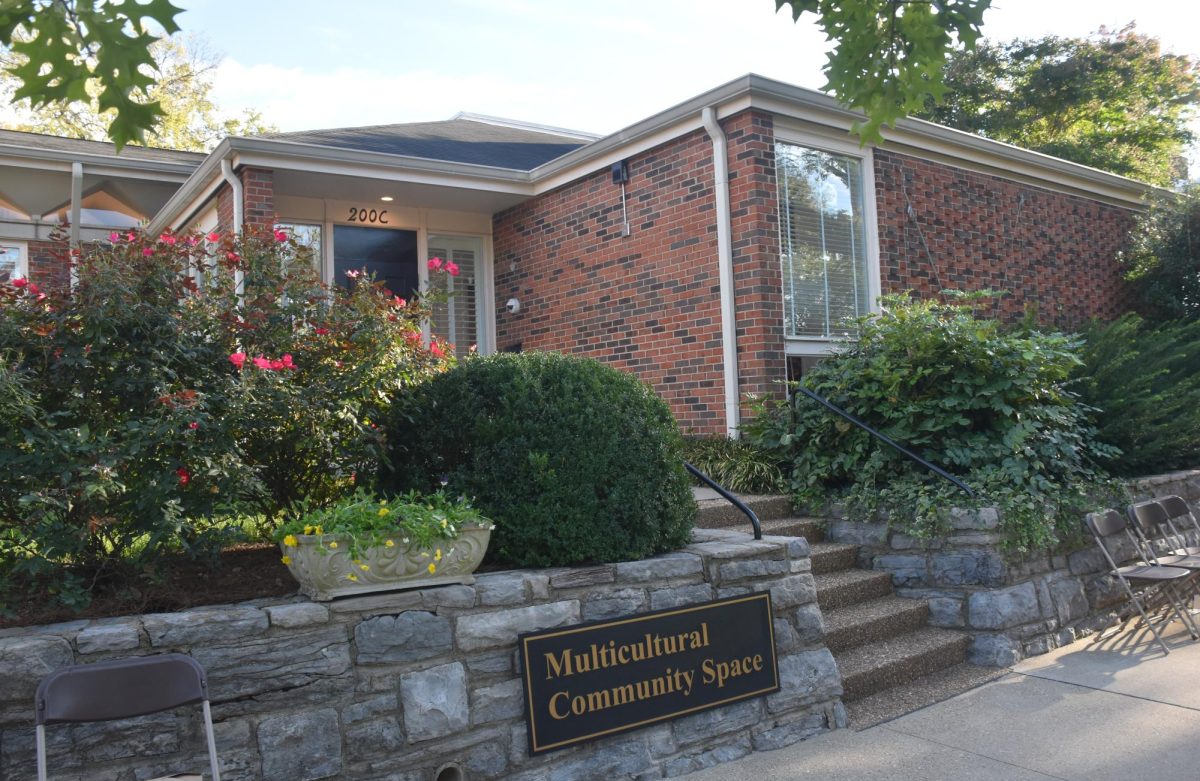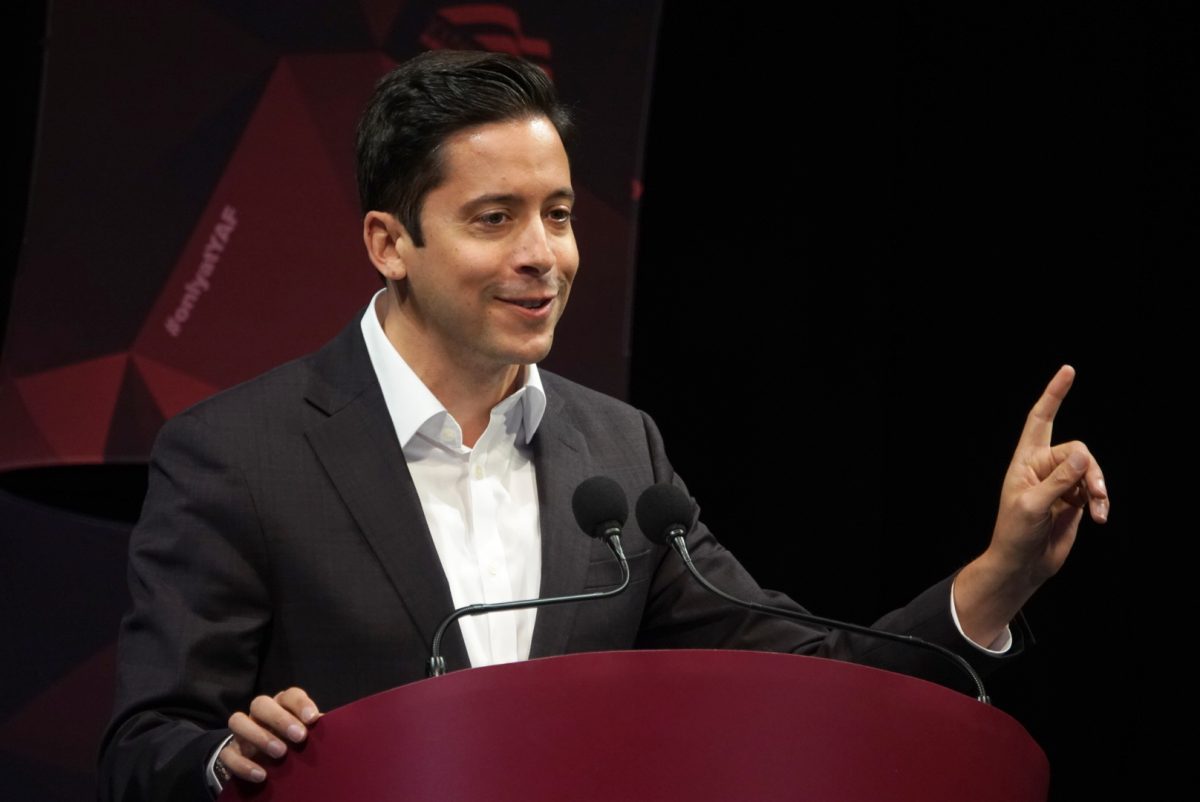Vanderbilt’s Center for the Study of Democratic Institutions surveyed 1,016 Nashville residents from March 13 to April 6. It found increasing discontent with the direction of the city, divided feelings about new developments and partisan disagreement about the state legislature’s recent actions.
Co-directed by political science professor Joshua Clinton and College of Arts and Science Dean John Geer, the annual Nashville poll was conducted via Internet and phone with a margin of error of ± 4.1 percentage points.
Direction of Nashville
The 2023 poll showed that Nashvillians increasingly viewed the city as going in the wrong direction (56%). This percentage is the highest in the poll’s eight-year history and the second year in a row in which the majority of respondents have held this viewpoint.
This negative view of Nashville’s future is driven mostly by residents who have lived in the city for 20 or more years. Of this demographic, 63% of respondents thought Nashville is going in the wrong direction. Residents of the city for less than 20 years were roughly split on the question.
Respondents viewed the city economy very differently based on their income. Of those making more than $45,000, 75% rated Nashville’s economy as very or fairly good, while only 44% of those making less than that threshold rated the economy as such.
Nashville’s mayoral election will be held on Aug. 3, and incumbent Mayor John Cooper has decided not to run for a second term in office. The poll found that 68% of residents would like to see the next Nashville mayor have a complete overhaul or major changes of priorities, as opposed to 31% who want to see minor or no priority changes. Respondents most believed that improving public education (74%) and reducing crime (64%) should be top priorities for the next mayor.
Despite these results, Cooper’s approval rating (59%) was the highest recorded in the Vanderbilt poll in the past three years. Clinton explained that city residents may not see Cooper as to blame for the problems facing the city.
“This suggests that concerns beyond the mayor’s control and likely related to concerns about growth, public education and the increasing tension between Nashville and the state government are affecting people’s optimism about the future of our city,” Clinton said.
City development
Respondents were asked about proposed plans for new development in the city. Of those who had heard of the plan, 68% supported “Imagine East Bank.” This project was proposed by Cooper to redesign the east bank of the Cumberland River in downtown Nashville to include a waterfront park, greenways and multi-use developments.

Nashvillians were less enthusiastic about the prospect of building a new Titans football stadium. The poll showed that 48% of respondents supported the plans to build a new stadium while 52% opposed the idea. On Wednesday, the Metro City Council voted 25-11 to approve the new stadium plan, advancing the proposal to a final vote being held tonight. The new $2.1 billion stadium would be the largest public investment — approximately $1.26 billion — into a stadium in NFL history.
Overall, 79% of the poll’s respondents said they thought Nashville was growing too quickly, while 20% said the city was growing about the right amount. Only 1% of respondents said Nashville was not growing quickly enough.
State politics
Nashville residents generally opposed the Tennessee state legislature’s recent actions, specifically the proposal to reduce the size of the Metro Council and its handling of laws affecting the LGBTQ+ community. However, support for these actions was divided along party lines.
On March 9, Tennessee Governor Bill Lee signed a law to cut the size of the Metro Nashville City Council in half. Among Nashville residents, 36% supported the reduction while 62% opposed the new law. Republicans in the city agreed with the measure (66% approve vs. 34% disapprove), but Democrats strongly disagreed (18% approve vs. 82% disapprove).
On LGBTQ+ issues, the poll found similar partisan divides and disapproval of the state’s actions. In early March, the Tennessee legislature passed laws restricting drag shows and banning gender-affirming care for minors. The poll found that 35% of Nashville residents approved of the legislature’s passing of those laws while 64% disapproved.
During the survey’s distribution, the Covenant School shooting occurred in the Green Hills neighborhood of Nashville on March 27. Comparing the responses before and after the tragedy, Geer noticed a change in public opinion of MNPD.
“The one finding we can report is that the public’s approval of the Metro Nashville Police Department jumped,” Geer said. “It was 66% prior to the shooting and 79% after it. This sharp increase aligns with the bravery these officers exhibited when they reached the school.”
Clinton told The Hustler that the biannual statewide Vanderbilt Poll currently underway includes questions related to the Covenant School shooting, state gun policies and the legislature’s expulsions of Representatives Justin Jones and Justin Pearson.










